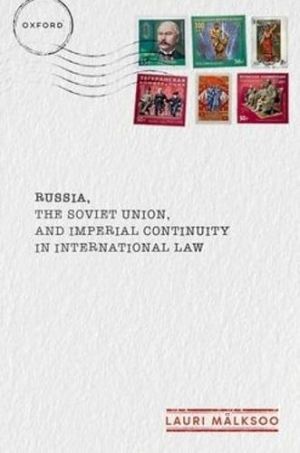
Russia, the Soviet Union, and Imperial Continuity in International Law explores the history of imperial ideas and practices in Russian and Soviet engagements with international law. This volume traces the role of international legal doctrines and arguments in facilitating the expansion of the Russian Empire, their transition into Soviet Russia post-1917, and their use after the disintegration of the Soviet Union in 1991.
Particular attention is paid to Russian and Soviet international legal doctrines concerning the termination of treaties (clausula rebus sic stantibus), identity and continuity of Russia in the context of state succession, hegemonic doctrines such as the great power status of Russia (or the Soviet Union), and various interpretations of balance of power and spheres of influence, including the doctrine of socialist international law. In building its narrative, the book draws extensively on previously under-studied international law periodicals published in Russia and the Soviet Union, including the 'Soviet Yearbook of International Law', 'Soviet State and Law' and 'Moscow Journal of International Law'.